“A Million Miles Away” Co-Writer/Director Alejandra Márquez Abella on Capturing a Dream Come True
Filmmaker Alejandra Márquez Abella learned of José Hernández 15 years ago when his inspirational story made headlines: Hernández, who toiled in the fields as a child alongside his family, is the first migrant farmworker to become a NASA astronaut and go into space — a lifelong dream he realized after nearly a decade of perseverance and pluck and with the unwavering support of his family and friends. When producers Mark Ciardi and Campbell McInnes approached Abella about bringing Hernández’s story to the screen, she jumped at the opportunity, finding the details of his extraordinary achievement fascinating.
The resultant movie, A Million Miles Away, is based on Hernández’s memoir, stars Michael Peña (Ant-Man and the Wasp) and Rosa Salazar (Maze Runner), and was produced by Amazon Studios. Now streaming on Prime Video, it also marks the fourth feature film from Abella, whose The Good Girls in 2018 garnered 14 Mexican Academy Ariel Awards nominations, winning four. Belonging to a new generation of Mexican filmmakers, she was dubbed one of Variety’s “10 Directors to Watch” in 2019.
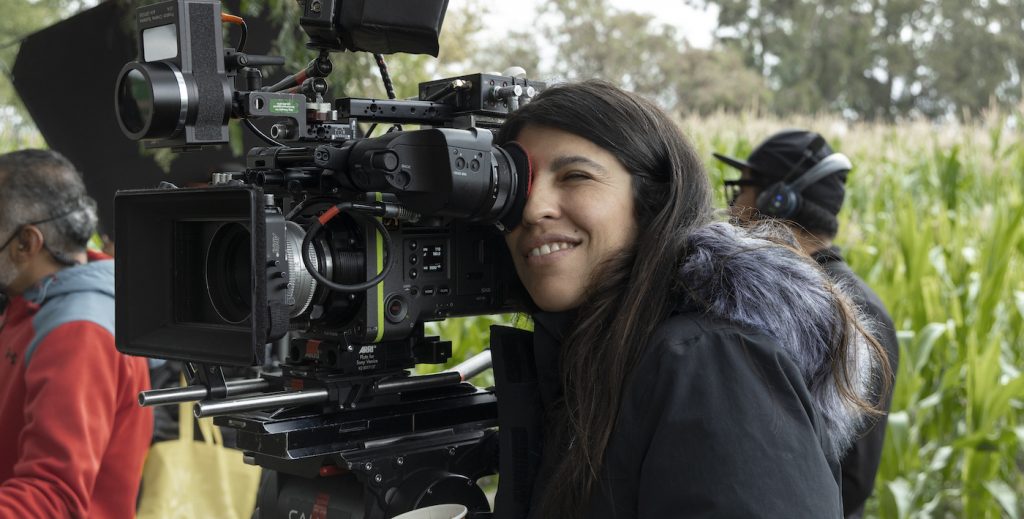
The Credits recently spoke with Abella about why she took poetic license with the story, how being respectful of the Mexican-American community was paramount, and who she has relished feedback on the film from most of all. This interview has been edited for length and clarity.
I love the “recipe” structure of the movie, which segments the film according to the ingredients for success told to José by his father. Why was the film packaged this way?
Well, he’s very much attached to his father’s recipe. When José goes and gives his conferences, it’s the center, it’s the heart of his speech, so I knew it was important to him. It was in the editing room that Hervé, my editor, and I noticed that the film was responding to that recipe, and we decided to chapter it and give it that structure. It seemed natural and like the right take.
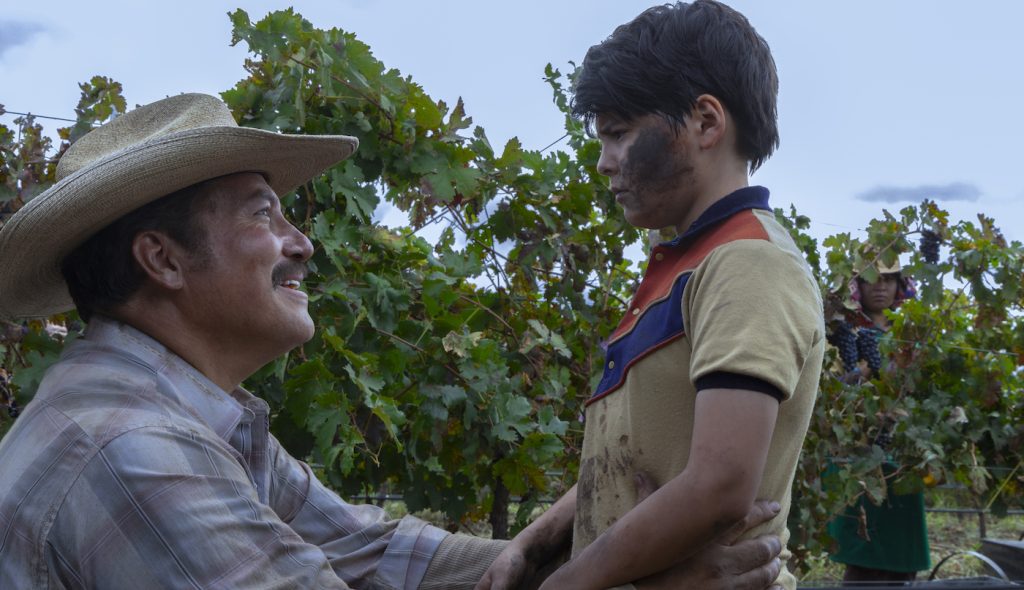
Your cast and crew are primarily Latino. Was this intentional or due in part to your filming in Mexico?
Yes, we shot in Mexico, around Mexico City. I mean, it was a consequence, I guess, of shooting in Mexico. I definitely had some options, like my cinematographer Dariela Ludlow, for example, has been around with me forever, so I wanted to take her on the ride. I was super persistent in bringing this production to Mexico because I thought it made sense. And then I thought it was very important to have a cast who actually were Mexican-American actors. Almost all of them are. Rosa Salazar is Peruvian-American, which is the exception, but I thought that piece of authenticity had to be in the film.
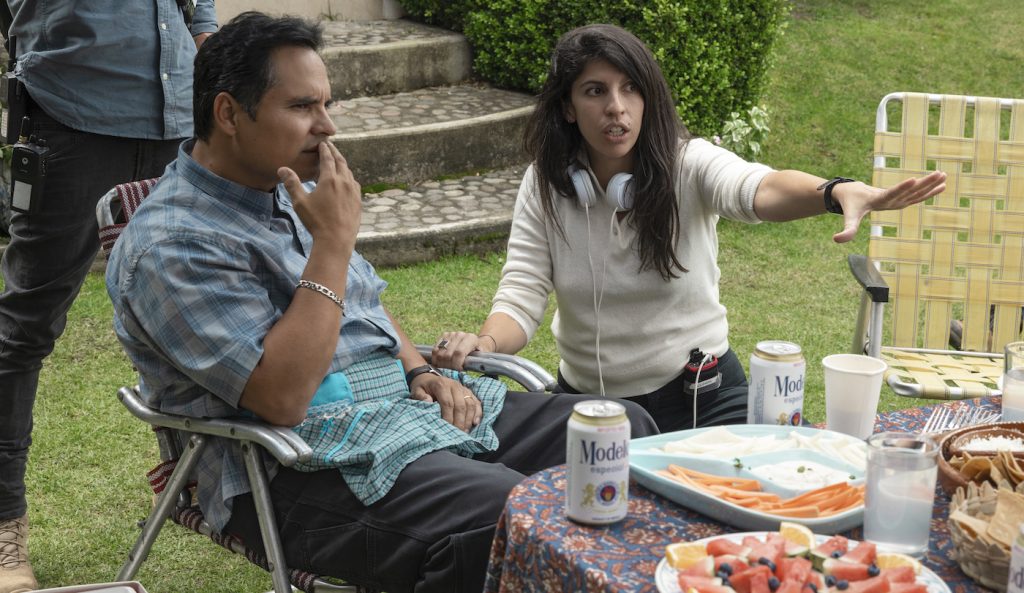
You are also a co-writer, basing the film on José’s memoir. Did you take any liberties for the sake of the story?
The film is full of poetic licenses because you have to fit a 50-year story into a two-hour movie, which is tough work. But the essence of what happened is there. I think what’s important is there, and the emotion of the underdog achieving the unbelievable is the most important part of it.
It’s a well-paced film, and you certainly had a lot to fit, his whole life essentially.
Yeah, we had to go through a decade in maybe a minute (laughs) in one of those real quick montages that we worked on, but I think that was part of the challenge and the fun of it.
This is a period piece to some extent, with a lot of footage from NASA and the like. What was especially challenging about capturing the feel of the past decades?
I think it’s us speaking about a very specific world in several locations, right? We start with Michoacán in the ’60s. What’s that, how does that look? And then Northern California in the ’80s, and then you go to Houston in the mid-90s and 2000. So, it was challenging in terms of the research that we had to do. My worry was to be authentic and also that the Mexican-American community was satisfied with what we were depicting. I didn’t want to make a cartoon of anything. I wanted to be fair, and I wanted to honor the community.
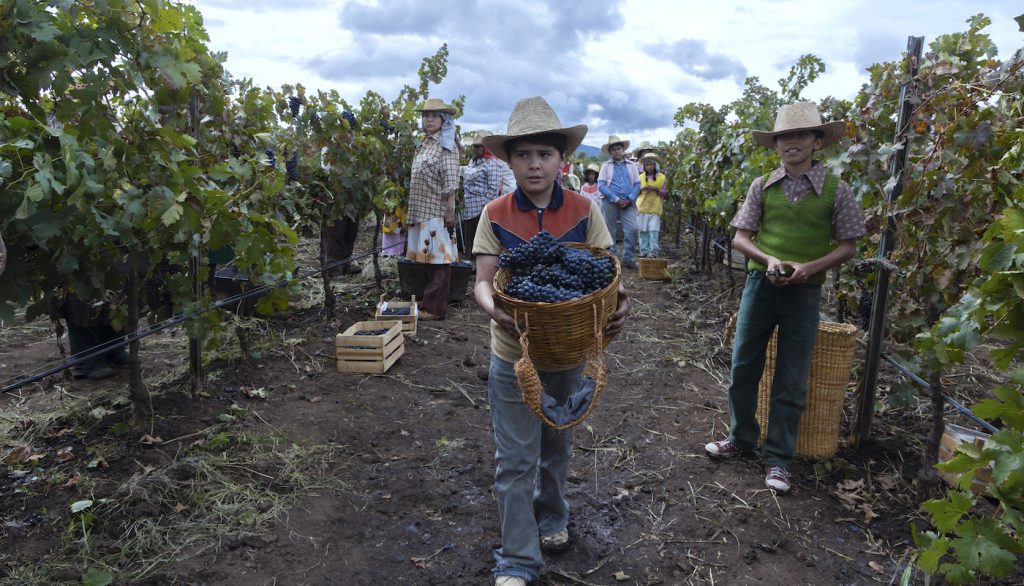
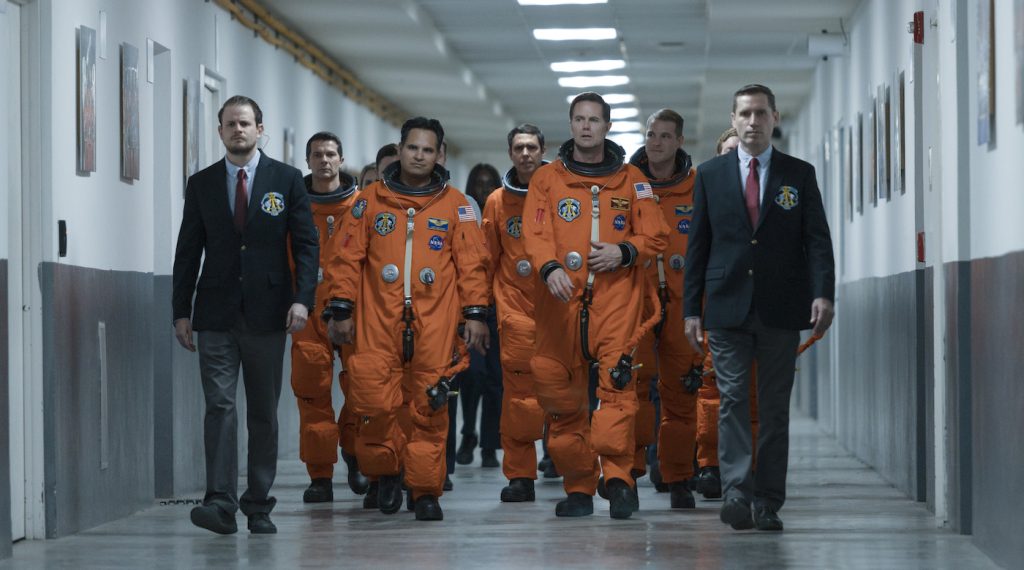
Tell me about casting Michael Peña, who plays José, and Rosa Salazar, who plays Adela. I felt that his wife was a hero as well for all her support and belief in him.
We didn’t have a doubt about Michael. Michael was always the first name to come up when we were thinking of making this film. I think he’s the best actor in the world, so I felt so lucky that we got to work together. And with Rosa, I think it’s the same thing. She’s such a delightful, creative person and the best collaborator, so it was such an amazing journey to work with both of them. I think they got along pretty nice, and they created their own world. Adela’s character is very important to José’s story in real life, but I think Rosa gave Adela an even bigger role in the story.

Was José involved in the production or on set? Did he see an early cut?
Yeah, he was reading the scripts from the beginning of the process, and then he came and visited us on set. It was a pretty interesting day to shoot the launch scene with him by our side. And it was very cool for me to have him on my cell, just to text him whenever I had a question or technical stuff. He was always around, so it was a big thing for me.
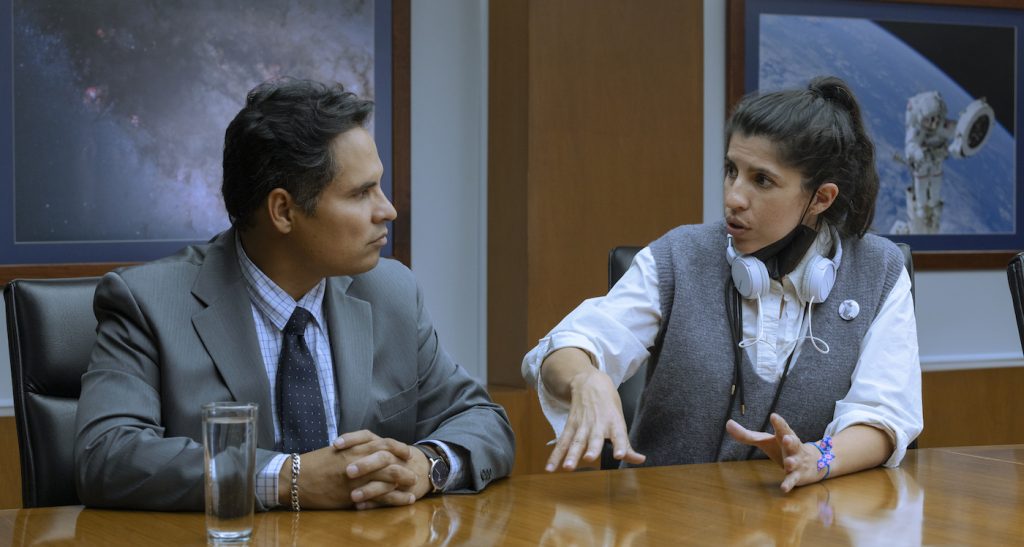
What has his feedback been?
He loves it! But Adela also loves it, which is better for me (laughs). The real Adela is happy, so I’m happy.
In the film, after liftoff, José looks at his hands. Is this symbolic of his working in the fields and how far he has come?
Yes, completely. I’m glad that you caught it perfectly (laughs). I love it when his father tells him that there’s honor in bringing food to people’s tables. I think that in that moment in the film, he’s reminding himself of that and praising that work ethic that he got from that experience as a kid.
What do you want for audiences to take away from this film?
I think this is a film that speaks about a man who achieved great stuff because he was a migrant farmworker, not in spite of it. So I think I would like the audience to think of themselves in those terms, just being at peace with your origins and what you are and knowing that that’s where your power can come from. It’s not against you, you know? It’s enabling you.
A Million Miles Away is streaming on Amazon Prime now.
For more on Amazon Prime Video, check out these stories:
“Red, White, & Royal Blue” Co-Writer/Director Matthew Lopez on Crafting a Modern Love Story
“Swarm” Production Designer Sara K. White on Creating Fractured Spaces for the Celebrity-Obsessed
Rachel Weisz Delivers Double the Trouble in Prime Video’s “Dead Ringers”
Featured image: Michael Pena stars in “A Million Miles Away.” Photo Credit: Daniel Daza. © 2023 Amazon Content Services LLC


